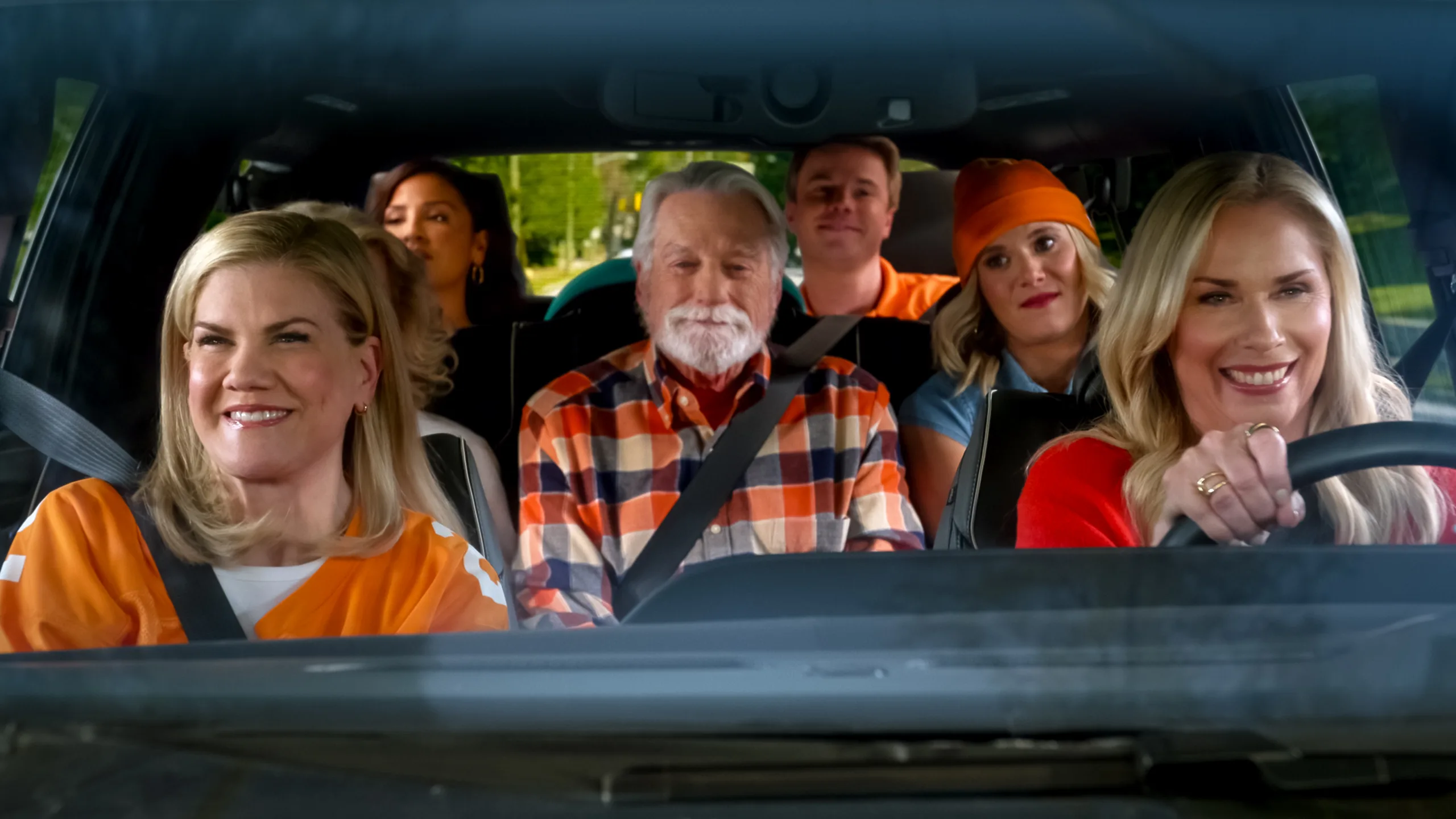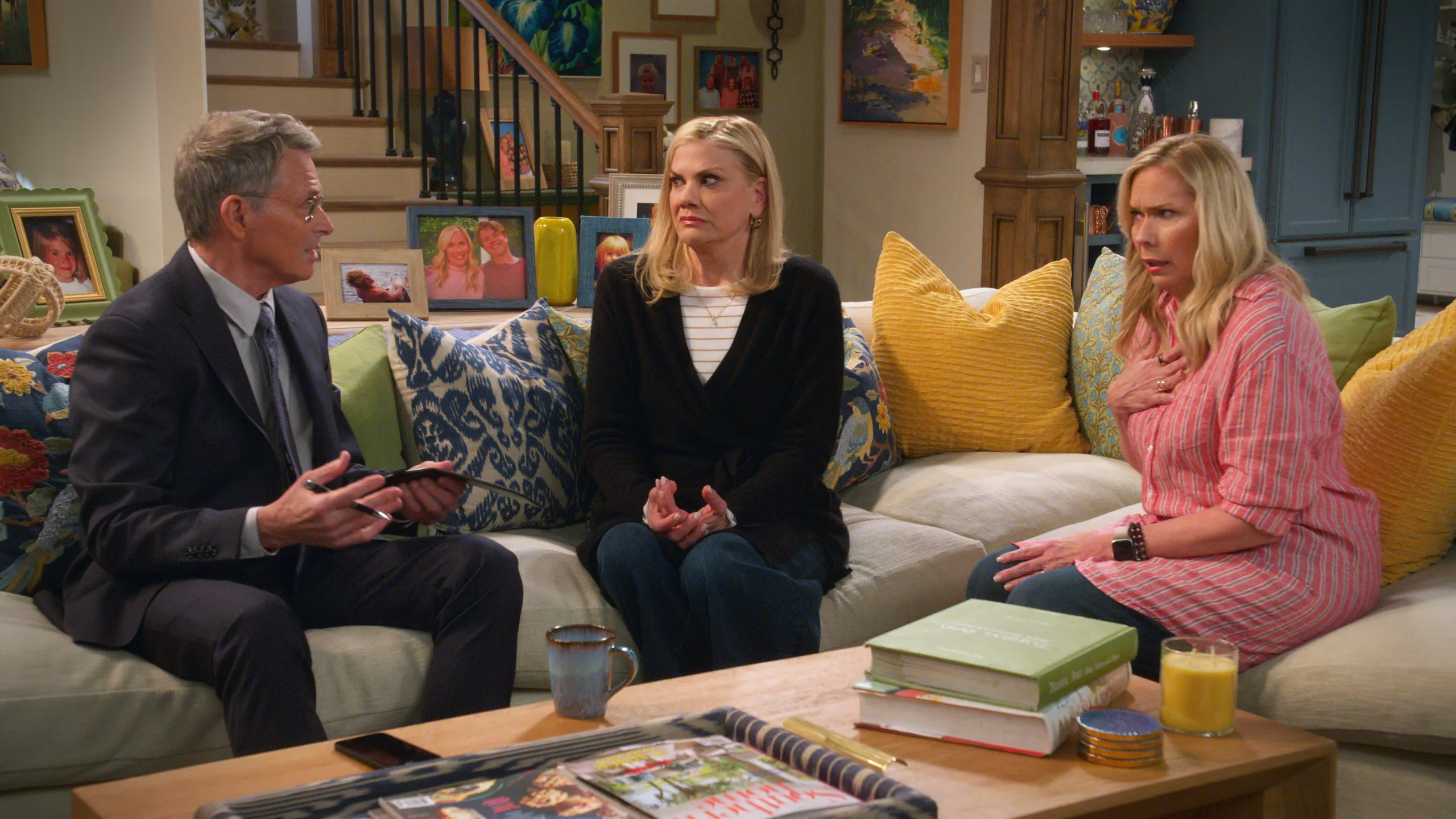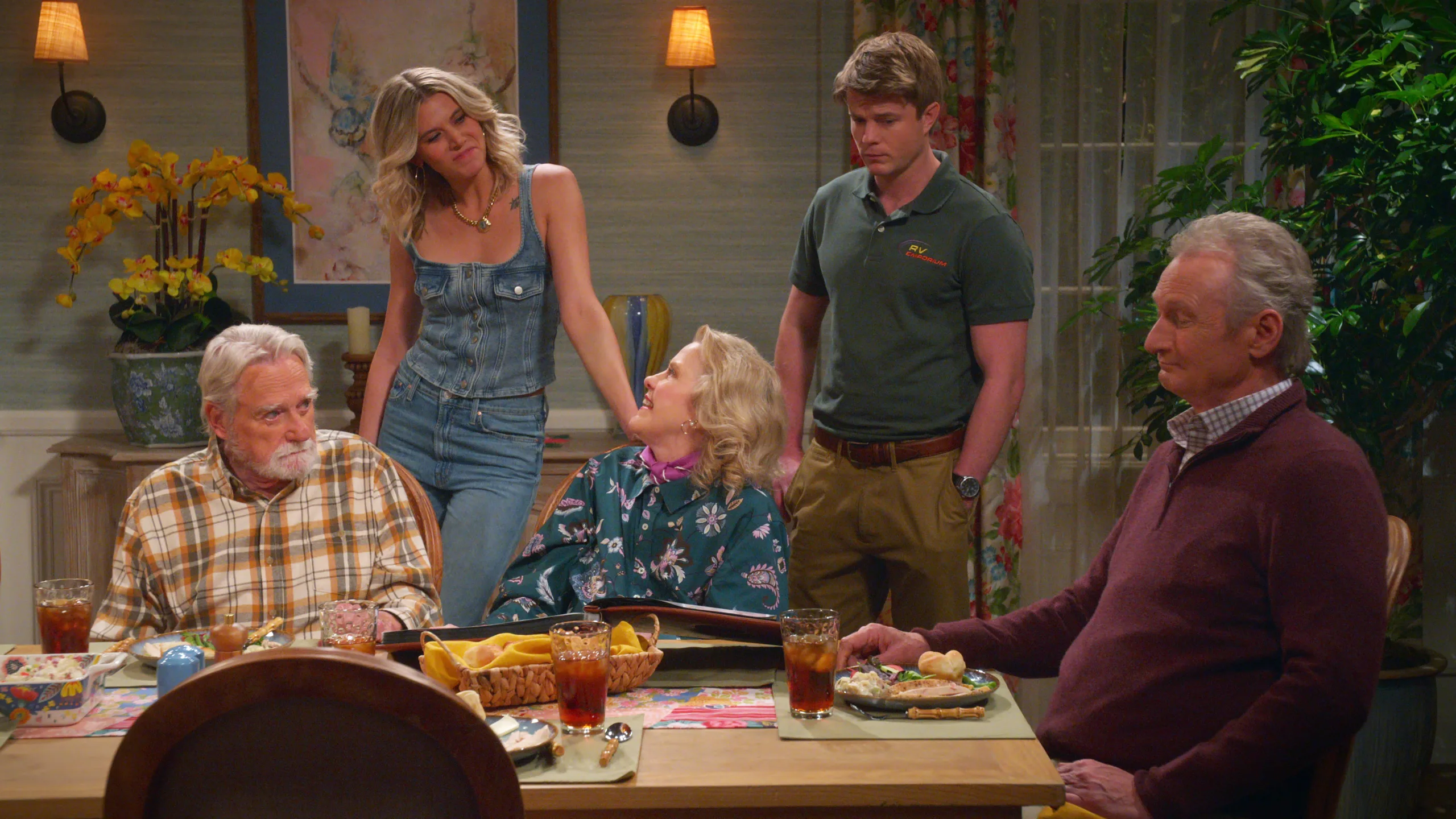The new Netflix laugher “Leanne” is … fine. The Chuck Lorre sitcom stars Leanne Morgan of the Netflix stand-up special, “Leanne Morgan: I’m Every Woman.” Fans of that hour will find many of the same themes and even some of the same jokes in the 16-episode first season, the first eight of which Netflix made available for critics to screen.
If you liked the stand-up, it’s probably because of Morgan’s voice–her unique and utterly relatable takes on aging, marriage, and parenting. That voice is in full effect in “Leanne,” which is why the series works as often as it does.
Being new to Morgan’s work, and not squarely in her demographic, it took me until the end of the second episode to so much as crack a smile. Forty minutes is a long setup, but the show gets better from there, welcoming in even an audience that may find Leanne’s suburban Tennessee foreign. Part of the initial problem is that Leanne and her fictional sister Carol (Kristen Johnston) open the series in full ham mode, making ridiculous faces that aren’t realistic, endearing, or funny. As we get to know them, though, their grimaces become less distracting, just part of the show. It also helps that Leanne escapes the one-note of her jilted housewife character as she starts to explore and even enjoy her newfound freedom.

Once you get on the wavelength of her show, Morgan has a lot of charm and presence. And once we’re through the setup in the initial episodes, the show gets underway with brisk jokes and set pieces, finding humor in things like people in their late 50s getting high.
None of it is cutting-edge, but that’s OK. It has a comforting (even if sometimes foreign) feel to it, and a strong supporting cast bolsters Morgan’s sometimes self-conscious performance. Celia Weston and Blake Clark play her aging parents and invite us to join in on the fun of their kooky and crochety characters. Bringing his signature mix of resignation and mischief, Ryan Stiles plays Leanne’s wayward husband and reverberates at just the right frequency. Jayma Mays plays Leanne’s busybody neighbor (fellow church member and exercise class participant), delivering a somehow grounded and exaggerated performance simultaneously. This trick achieves what Morgan and Johnston attempt from the get-go, but don’t always muster–a character who knows what show she’s in and invites folks to laugh both with and at her.
I also appreciate Annie Gonzalez being there—she plays Leanne’s daughter-in-law, Nora. And while Gonzalez eats whatever material she’s given (and this show is no exception), her character exposes some of the problems with “Leanne.” You see, Nora is the nag, bringing down everyone’s good time by pointing out the problems with football (concussions!), for example, and generally being a party-pooper. It doesn’t matter that she’s right–the show is against her, portraying her husband as hen-pecked and trapped in a move that is both retrograde and unfunny.

Likewise, Morgan makes numerous jokes about her body, both in the sitcom and her stand-up. But while she radiates confidence on stage, undercutting her supposed insecurities, the same is not true in the situational comedy. There, the fictional Leanne is brought low by her worries about her body, and so laughing at them feels not conspiratorial but somewhere between fraught and cruel. In addition, these jokes about aging (and the loss of beauty that accompanies it) feel tired. They’ve been done, and with the We Do Not Care Club making headlines for its capturing of a new cultural zeitgeist, this sitcom had the opportunity to find fresh jokes about menopause. It does not, in keeping with its favoring a traditional broadcast TV sense of humor over taking any chances.
It’s no “Abbott Elementary” or “The Office” or “Rosanne.” I can’t imagine it in any awards conversations. But it’s not trying to. Its goal is comfort TV, and “Leanne” mostly achieves that. Bless its heart.












